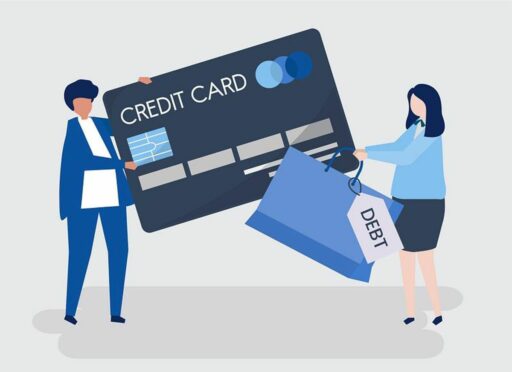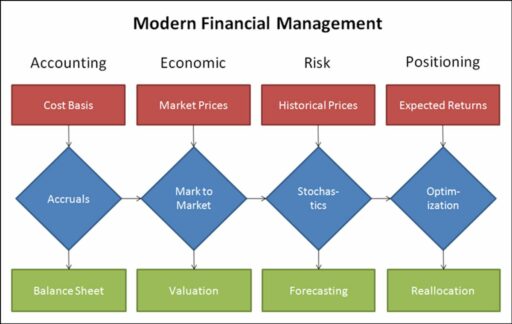Closed-end credit provides a fixed amount of money for a specific purpose and duration. Understanding what doesn’t qualify for financing is crucial for borrowers looking to leverage their assets without affecting their current mortgage terms. This article delves into the intricacies of closed-end credit, highlighting eligibility criteria, the nature of second mortgages, alternative borrowing options, loan usage restrictions, and the application process for non-qualified mortgage (Non-QM) closed-end seconds.
Key Takeaways
- Closed-end second mortgages offer a way to access equity without altering the terms of an existing Non-QM loan, but are not available in certain states and for specific industries.
- While closed-end seconds might have lower interest rates compared to unsecured loans, they come with the risk of variable rates and the potential loss of property upon default.
- Alternatives to traditional personal loans include crowdfunding, cash advance apps, and Payday Alternative Loans (PALs), especially for those who can’t qualify for personal loans.
- Borrowers are often restricted from using closed-end credit funds for college tuition, small business expenses, gambling, or real estate purchases.
- High-risk borrowers may face higher interest rates during the application process for Non-QM closed-end seconds, and should consider credit counseling before proceeding.
Eligibility Criteria for Closed-End Credit Financing


Ineligible States and Territories for Loans
When seeking closed-end credit financing, it’s crucial to be aware of geographic restrictions that may apply. Certain states and territories are deemed ineligible for loans, which can significantly impact potential borrowers in those regions. For instance, loans originated in US Territories and a number of states do not qualify for financing due to various regulatory and compliance issues.
The following is a list of states where closed-end second mortgages are typically not available:
- Alaska (AK)
- New York (NY)
- Tennessee (TN)
- Texas (TX)
- Vermont (VT)
- West Virginia (WV)
- Wyoming (WY)
It is important for borrowers to contact their Account Executive for detailed information on these restrictions as they can vary and may include additional stipulations.
Applicants should also be mindful that these limitations are not exhaustive and conditions apply. Not all applicants will qualify, and this is not a commitment to lend. For those residing in ineligible areas, exploring alternative financing options may be necessary.
Industry Restrictions and Qualifying Activities
When seeking closed-end credit financing, it’s crucial to understand that not all industries are eligible for such loans. Certain sectors are deemed too risky or are not aligned with lender policies, leading to restrictions. For instance, industries like real estate investing, gambling, and political lobbying are typically ineligible due to their nature or regulatory concerns.
Eligibility also hinges on compliance with government loan obligations. Applicants must be current on all government loans without any history of defaults. Specifically, being late on a federal student loan or a government-backed mortgage beyond 90 days can disqualify you from obtaining closed-end credit.
The landscape of industry eligibility is shaped by varying risk levels and lender preferences. High-risk industries often face greater scrutiny and may have inconsistent revenue streams, which can include restaurants and beauty services.
Moreover, government-backed loans, such as those from the U.S. Small Business Administration (SBA), come with their own set of industry and size criteria. To qualify for SBA loans, businesses must adhere to the SBA’s definition of a ‘small’ business and operate as a for-profit entity, steering clear of the aforementioned ineligible industries.
Impact of Credit History and Government Loan Compliance
Your credit history is a critical factor in securing closed-end credit financing. Lenders scrutinize your credit reports for patterns of financial behavior, seeking assurance that you are a reliable borrower. A history of on-time payments and responsible credit management can significantly increase your chances of approval.
Government loan compliance is equally important. Applicants must be current on all government loans without any history of defaults. For instance, being late on a federal student loan or a government-backed mortgage can lead to disqualification. This compliance ensures that borrowers are not over-leveraged and are capable of managing new debt responsibly.
-
Credit History Requirements:
- No major negative events (e.g., bankruptcies)
- A long history of on-time payments
- Low levels of outstanding debt
-
Government Loan Compliance:
- Current on all government loans
- No past defaults (especially within 90 days of the due date)
It is essential to maintain a clean financial slate with both private lending institutions and government loan programs to secure closed-end credit.
Advantages and Disadvantages of Closed-End Second Mortgages


Comparing Interest Rates with Unsecured Loans
When considering a closed-end second mortgage, it’s crucial to compare the interest rates with those of unsecured loans. Closed-end mortgages often feature lower interest rates than their unsecured counterparts, making them an attractive option for borrowers. However, the stability of these rates can vary, and it’s important to understand the potential for fluctuation.
Pros of closed-end second mortgages include:
- Lower interest rate than unsecured loans
- Credit line available for emergencies
Cons include:
- Harder to budget due to fluctuating interest rates
- Risk of rates and payments rising
- Possibility of losing your home if payments cannot be made
While secured loans typically offer more favorable interest rates, the implications of defaulting are much more severe, including the risk of foreclosure. This trade-off must be weighed carefully against the benefits of lower rates.
By shopping around and comparing different lenders, you can find the best interest rate for your financial situation. Keep in mind that adding collateral can improve your chances of approval and potentially secure a better rate. Always consider the full scope of loan terms, not just the interest rate, to make an informed decision.
Risks of Variable Interest Rates and Payment Fluctuations
Closed-end second mortgages with variable interest rates carry the inherent risk of payment fluctuations. This can make budgeting a challenge, as monthly payments may increase with rising market conditions. Borrowers must be prepared for the possibility of higher payments over time, especially during the transition from interest-only payments to full principal-and-interest payments.
- Pros
- Potentially lower initial interest rates
- Rates and payments may decrease if market conditions improve
- Cons
- Payments may become unaffordable during repayment period
- Risk of foreclosure if unable to meet payment obligations
It’s crucial for borrowers to understand the implications of variable interest rates and to budget for potential increases in payments. Those who are not comfortable with this risk might consider alternatives with fixed interest rates.
When considering a HELOC or any variable rate loan, it’s advisable to weigh the pros and cons carefully. For those who prioritize stability in their financial planning, the unpredictability of variable rates might be a significant drawback. On the other hand, if market conditions are favorable, borrowers could benefit from lower payments. Remember, tips for borrowing include understanding collateral requirements and considering unsecured loans if the risk of fluctuating payments is a concern.
Consequences of Defaulting on Payments
Defaulting on closed-end credit payments can lead to severe financial repercussions. Once a borrower fails to meet the payment obligations, the lender may initiate the foreclosure process, especially in the case of secured loans like second mortgages. This could result in the loss of the borrower’s home or other collateral pledged against the loan.
The consequences of default are not limited to asset loss; they also include long-term credit damage. A default is typically recorded on the borrower’s credit report, leading to a significant drop in credit score. This, in turn, affects future borrowing capabilities, often resulting in higher interest rates or outright denial of credit applications.
- Credit Score Impact: A default can drastically reduce your credit score.
- Loan Approval Difficulty: Future loan approvals may become challenging or impossible.
- Interest Rate Increases: Expect higher interest rates on subsequent loans, if available.
- Asset Loss: Risk of losing assets tied as collateral, such as a home.
Defaulting on a loan is a serious event that can disrupt your financial stability and should be avoided at all costs. It is essential to understand mortgage nuances and the role of credit in real estate investing to build a solid financial foundation.
Alternatives to Traditional Personal Loans


Exploring Crowdfunding and Cash Advance Apps
When traditional personal loans are out of reach, individuals often turn to alternative financing options. Crowdfunding platforms have emerged as a popular choice, allowing people to raise funds directly from the public for various personal needs or projects. Similarly, cash advance apps provide a quick way to access funds based on upcoming paychecks, often with minimal eligibility requirements.
For those considering these alternatives, it’s crucial to understand their distinct features:
- Crowdfunding may require a compelling story or project that resonates with potential donors.
- Cash advance apps typically offer small amounts and expect repayment on the next payday.
- Both options can be more accessible than traditional loans but may come with their own set of challenges, such as platform fees or high-interest rates.
While these alternatives can be lifesavers in urgent situations, they should be approached with caution and a clear understanding of the terms and conditions involved.
The Role of Federal Credit Unions and Payday Alternative Loans
Federal credit unions offer a beacon of hope for individuals who struggle to qualify for traditional personal loans. Payday Alternative Loans (PALs), provided by these credit unions, are designed as a more affordable option compared to high-cost payday loans. PALs can be a viable solution for borrowers with lower credit scores or those seeking smaller loan amounts.
PALs typically come with lower interest rates and longer repayment terms than payday loans, making them a less risky financial choice.
Eligibility for PALs often hinges on membership with the federal credit union, which usually involves a small fee and opening a savings account. Here’s a quick rundown of the key features of PALs:
- Loan amounts range from $200 to $1,000.
- The maximum interest rate is 28%, significantly lower than payday loans.
- Repayment terms can extend up to six months.
- Applicants must be credit union members for at least one month.
While PALs provide a more affordable borrowing option, it’s important to consider all financial obligations and ensure the ability to repay the loan within the agreed terms to avoid additional financial strain.
Leveraging Home Equity: Loans vs. HELOCs
When considering leveraging home equity, homeowners are faced with choosing between a Home Equity Loan (HEL) and a Home Equity Line of Credit (HELOC). The primary distinction lies in the disbursement and repayment of funds. HELs provide a lump sum upfront and have fixed payments over the loan term, while HELOCs offer a revolving credit line with variable payments based on the amount drawn.
Homeowners should assess their financial needs and spending habits to determine the most suitable option. A HEL might be preferable for those with a one-time, large expense and a desire for predictable repayment schedules. In contrast, a HELOC may be more fitting for ongoing expenses or as a flexible safety net for future financial needs.
The choice between these two types of credit products also hinges on interest rate preferences:
- HELs typically come with fixed interest rates, offering stability over the loan term.
- HELOCs often have variable rates, which can lead to fluctuating payment amounts.
Ultimately, the decision should align with the homeowner’s financial strategy and risk tolerance.
Understanding the Restrictions on Loan Usage


Prohibited Uses: Education and Small Business Funding
When it comes to closed-end credit, not all expenses are eligible for financing. Lenders often exclude certain uses from the terms of a loan, particularly when it comes to education and small business funding. This is because these areas can involve more complex risks and regulations that lenders prefer to avoid.
For instance, using loan funds for college tuition is typically prohibited. The same goes for injecting capital into a small business. These restrictions are in place to ensure that the loan is used for purposes that are within the lender’s risk tolerance and compliance framework.
- College tuition or educational expenses
- Small business capital or expenses
- Real estate investments
- Gambling activities
It’s crucial for borrowers to understand these limitations before applying for a loan, as misusing funds can lead to serious consequences, including loan default and legal action.
The Implications of Using Loans for Gambling or Real Estate
When it comes to closed-end credit, not all purposes are deemed eligible for financing. Using loans for gambling or purchasing real estate often falls outside the scope of permissible use. This is because such activities carry higher risks and can lead to financial behaviors that lenders are keen to avoid.
- Gambling is typically prohibited due to its speculative nature and the high potential for loss.
- Real estate purchases are generally excluded because they require specialized loan products, such as mortgages, that are designed to accommodate the long-term nature and significant size of the investment.
It’s crucial for borrowers to understand that deviating from the agreed-upon use of loan funds can result in severe consequences, including the possibility of loan default.
Lenders enforce these restrictions to mitigate their risk and ensure that the loan serves its intended purpose. If you’re considering a closed-end credit option, be sure to review the lender’s stipulations carefully to avoid any unintended misuse of funds.
Navigating Lender Stipulations for Loan Funds
When securing closed-end credit, understanding lender stipulations for the usage of loan funds is crucial. Lenders may have specific requirements or restrictions on how you can use the borrowed money, which can significantly impact your financial strategy. For instance, some lenders may not permit the use of loan funds for certain investments or purchases that they consider high-risk or outside their lending policy.
- Some lenders specialize in loans for specific purposes, like credit card consolidation.
- It’s important to align your loan’s intended use with the lender’s acceptable uses.
- Collateral may be an optional requirement depending on the lender and the loan type.
Before finalizing the loan, it’s essential to review all the lender’s stipulations. This includes understanding any requirements for collateral and ensuring that the loan’s purpose aligns with the lender’s policies. Failure to adhere to these stipulations can lead to complications in the loan process or even the denial of the loan application.
To ensure compliance with lender requirements, borrowers should be prepared to provide necessary documentation. This could include verification of personal and financial information, as highlighted by the Requirements for Certain Assets in DU | Fannie Mae – Selling Guide. The documentation process is a critical step in the application process and can vary from lender to lender.
Navigating the Application Process for Non-QM Closed End Seconds


Steps to Get Approved for Closed-End Credit
Securing approval for a closed-end credit involves a series of steps that can enhance your chances of success. Firstly, it’s crucial to review your credit history and address any discrepancies. This includes ensuring that your credit reports are free of errors and that your bills are paid on time. Keeping your credit utilization below 30% and limiting new credit inquiries can also be beneficial. It’s worth noting that closing credit cards may temporarily reduce your credit score.
Next, consider the loan amount you’re requesting. Smaller loan amounts are generally easier to get approved for, so borrow only what you need. Adding collateral can also improve your chances, as it reduces the lender’s risk. If you’re struggling to get approved, secured personal loans from local credit unions or regional banks might be an option.
Finally, don’t hesitate to shop around. By comparing offers from various lenders, you can increase the likelihood of approval and find the most favorable terms. Remember, lenders specializing in high-risk borrowers may approve your application, but this often comes with higher interest rates.
Dealing with High-Interest Rates for High-Risk Borrowers
High-risk borrowers often face the challenge of securing financing at reasonable rates. If you fall into this category, it’s crucial to understand that while options exist, they come at the cost of higher interest rates. This is because lenders view high-risk borrowers as more likely to default on their loans, necessitating a higher return to justify the risk.
- Assess your credit health and consider improving it before applying for a loan.
- Explore lenders specializing in high-risk profiles, but be prepared for higher rates.
- Credit counseling services can provide valuable advice on managing high-interest debt.
It’s important to note that the transition from interest-only payments to full principal-and-interest payments can significantly increase monthly obligations. Budgeting for this change is essential to avoid financial strain.
Remember, each lending option has its pros and cons. While personal loans might offer slightly higher rates without the risk of foreclosure, a HELOC could provide lower rates but comes with the risk of losing your home if you default.
Contact Information and Resources for Applicants
When you’re ready to apply for closed-end credit, having the right resources at your fingertips is crucial. LoanStream’s website offers a wealth of information on topics such as creditworthiness, borrowing money, and mortgage insights. For those interested in non-traditional financing like carpet financing, you’ll find that no credit requirement is a significant advantage.
To begin your application, you’ll need to prepare several documents:
- Loan application details
- Proof of identity
For assistance, you can reach out to LoanStream’s support team at (800) 760-1833 or visit the various sections of their website for more information:
- LoanStream Corporate
- Correspondent Lending Division
- Retail Lending Division
Remember, thorough preparation can streamline your application process and improve your chances of approval.
Stay informed about updates and special offers by subscribing to LoanStream’s newsletter or following their social media pages.
Conclusion
In summary, closed-end credit offers a structured borrowing option that can be beneficial for those with specific financing needs, such as accessing equity without affecting the terms of an existing Non-QM loan. However, it’s crucial to recognize what typically doesn’t qualify for such financing. Ineligible states and territories, higher interest rates for second mortgages, and restrictions on industry and loan use are significant considerations. Borrowers must also be wary of the risks associated with secured loans, such as potential loss of property. For those unable to meet traditional lending criteria, alternatives exist, but they often come with higher costs. Ultimately, understanding the nuances of closed-end credit is essential for making informed borrowing decisions and exploring the market effectively.
Frequently Asked Questions
What are Closed End Seconds and how do they benefit borrowers?
Closed End Seconds are additional mortgages taken on a property that do not interfere with the original mortgage terms. They allow borrowers to access a lump sum of equity all at once, offering up to 85% Max CLTV for various property types and employment situations.
Why are certain states and territories ineligible for Closed-End Credit Financing?
Loans originated in certain US Territories and states like AK, NY, TN, TX, VT, WV, WY are ineligible due to specific legal and regulatory constraints. Borrowers in these areas should contact their Account Executive for more details.
What are the disadvantages of Closed-End Second Mortgages?
Closed-End Second Mortgages may have higher interest rates than first lien mortgages, harder budgeting due to fluctuating rates, potential payment increases, and the risk of losing your home if payments cannot be made.
What industries are typically ineligible for Closed-End Credit Financing?
Industries such as real estate investing, gambling, or political lobbying activities are typically ineligible. Additionally, borrowers must be current on all government loans without past defaults to qualify.
What are some alternatives if I can’t qualify for a personal loan?
Alternatives to personal loans include crowdfunding, cash advance apps, borrowing from friends or family, buy now pay later loans, Payday Alternative Loans (PALs) from federal credit unions, and home equity loans or HELOCs for homeowners with sufficient equity.
What are the restrictions on how I can use loan funds from a personal loan?
Most lenders stipulate that loan funds cannot be used for college tuition, small business expenses, gambling, or purchasing real estate. Personal loans are generally flexible but must be used for legal purposes.





